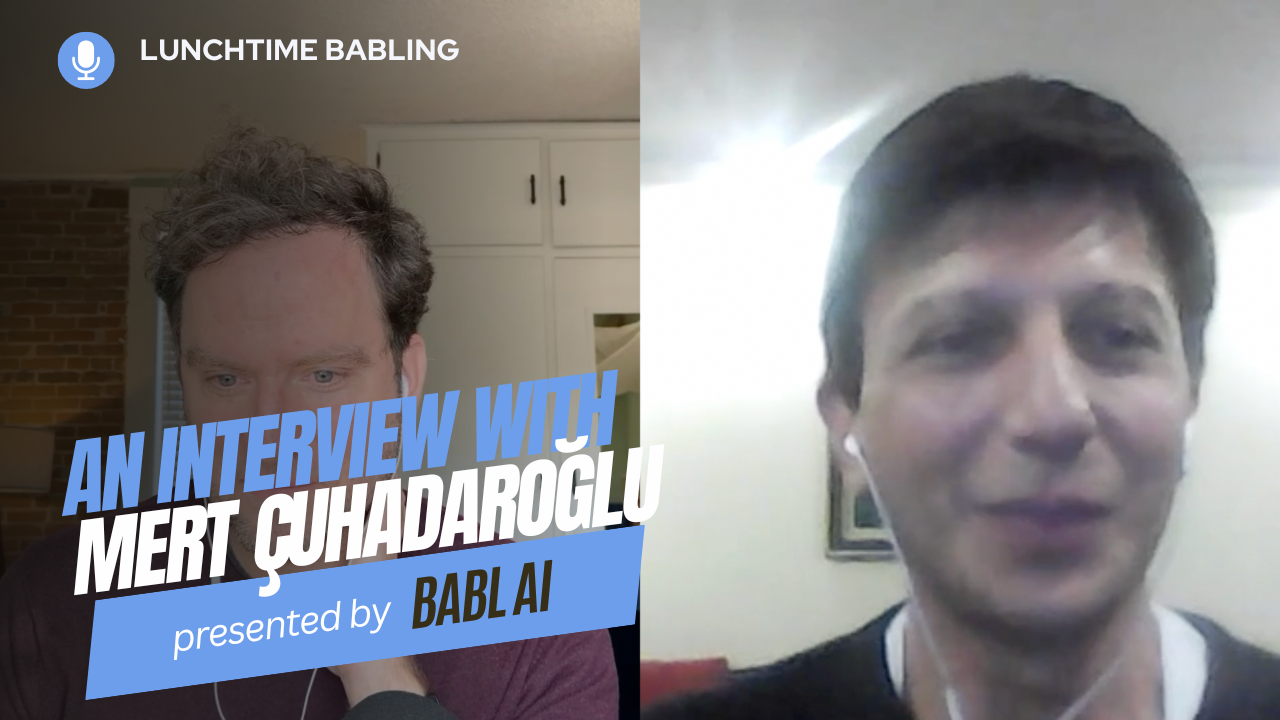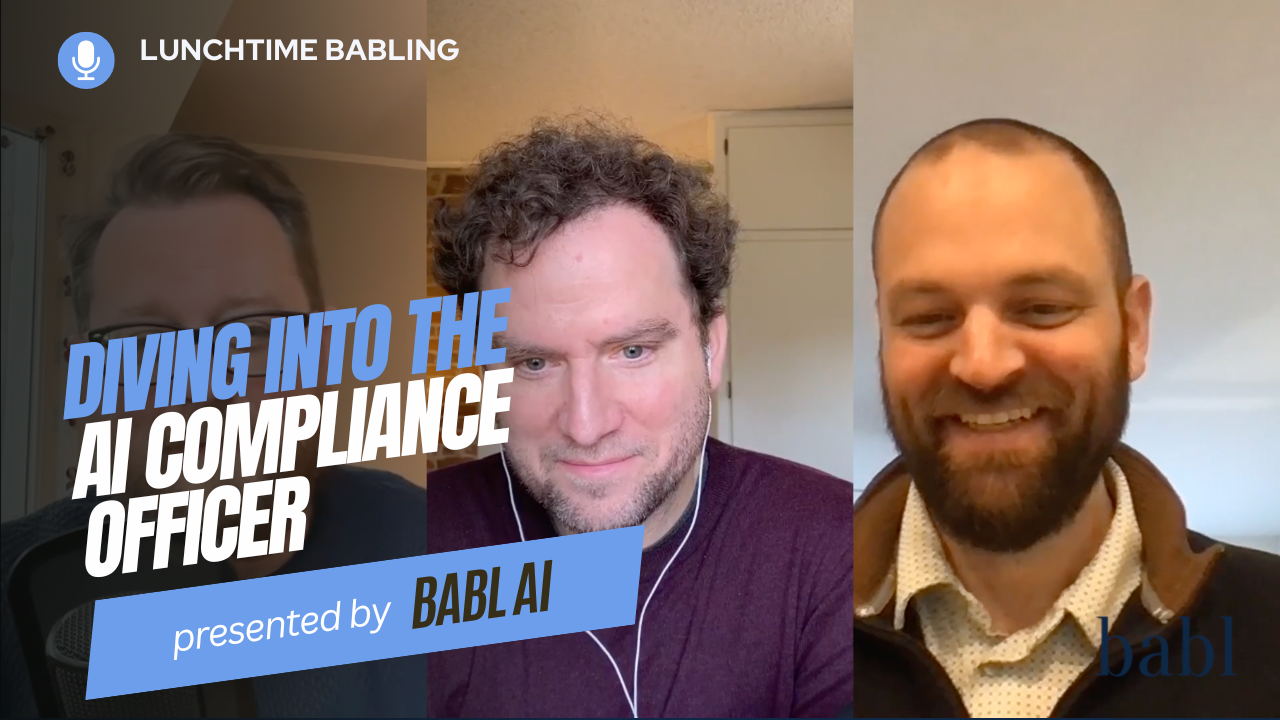AI isn’t just changing the job market — it’s reshaping what it means to be a knowledge worker. In the latest episode of Lunchtime BABLing, BABL AI CEO Dr. Shea Brown sits down with Jeffery Recker and newcomer Emily Brown to talk candidly about careers in responsible AI, algorithmic auditing, and governance. The conversation cuts through hype and fear, focusing instead on what skills actually matter when AI becomes part of every job.
The New Reality: AI Everywhere
If you’ve opened LinkedIn recently, you’ve seen it: layoffs, reorganizations, and executives promising to “streamline with AI.” But what does that mean for the people actually doing the work? Shea points out that we’ve effectively reached a point where everyone has access to something that feels like a PhD-level expert in their pocket. That creates anxiety for workers in every sector — if a model can summarize, draft, plan, or research faster, what value is left for humans?
Emily, who transitioned from marketing and operations into responsible AI, describes that anxiety firsthand. Her background wasn’t technical. She didn’t come from data science or engineering. She simply saw a future where AI was involved in every process — from hiring to marketing — and realized she wanted to ensure it was being used responsibly, not recklessly.
Expertise Isn’t Dead — It Just Looks Different Now
One of the most important themes in the discussion is that successful professionals in the era of AI share one trait: they can filter noise. Most people have seen the explosion of what Shea calls “AI slop” — unedited, poorly checked outputs from generative tools clogging inboxes, meetings, and workflows. The value isn’t in generating more. It’s in knowing what matters, what’s correct, and what should never be used. You don’t win by producing the most content. You win by producing clarity.
Rather than fearing that AI knows more, Shea argues that this is the moment to build domain expertise. When everything is automated, understanding context, ethics, risk, and consequences becomes priceless. Businesses aren’t looking for prompt jockeys. They’re looking for people who can judge what’s right, what’s safe, and what’s aligned with organizational priorities.
Human Judgment Is the Differentiator
Jeffery makes a point that resonates across the entire conversation: companies are adopting AI faster than they understand it. Tools are being pushed into recruiting, marketing, compliance, and decision-making, often without anyone checking whether the output is ethical or even accurate. A system may optimize for efficiency while accidentally sidelining certain demographic groups, misrepresenting a brand, or introducing liability. Emily describes seeing marketing campaigns derailed because someone fed the wrong prompt to a model without oversight. The issue wasn’t the AI. The issue was the lack of responsible humans supervising it. Responsible AI isn’t purely technical — it’s deeply human.
A Path Into the Field (Even Without a Technical Background)
The episode highlights something a lot of people don’t believe until they see it modeled: you can move into AI governance from almost any discipline. Emily joined the BABL community as a student, took the introductory course, and reached out offering help. Her background in ethics and operations became an asset. Today she’s Interim Chief of Staff at BABL AI and finishing her auditor certification. This is the new pattern. People don’t “switch into AI.” They bring their existing experience — operations, HR, education, marketing, policy — and layer AI literacy on top of it.
A Rare Thing in Tech: Community
Perhaps the most unexpected takeaway is that responsible AI has built a community around itself. Students in BABL AI programs collaborate, share opportunities, and help each other through hiring and career pivots. It’s not a race to be first. It’s a movement to get it right.
Why This Episode Matters
Amid the headlines and doomsday predictions, this conversation is something rare: grounded, actionable, and optimistic. It doesn’t deny the reality of automation or the speed of change. It simply reframes the moment. AI is not removing the need for skilled people. It is revealing what kind of skill matters. Judgment. Ethics. Clarity. The ability to ask better questions and reject bad answers. Those aren’t tasks AI is taking anytime soon.
Where to Find Episodes
Lunchtime BABLing can be found on YouTube, Simplecast, and all major podcast streaming platforms.
Need Help?
Looking to explore a career in AI governance beyond the headlines? Visit BABL AI’s website for more resources on AI governance, risk, algorithmic audits, and compliance.





